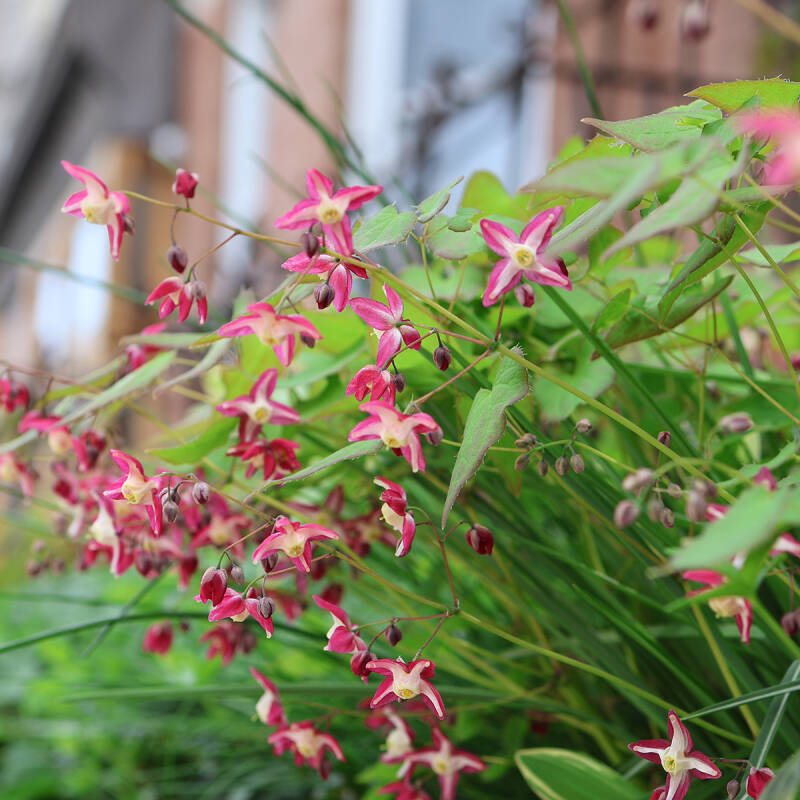Earlier this year, we signed up for a newsletter from a trio of women called the SSAW Collective. A burgeoning community of florists, growers and chefs committed to a radically ethical approach to working with seasonal produce, we found ourselves longing to sit at every one of their long-table events, so we decided to find out more …
Images courtesy of SSAW.

SSAW was founded in 2020 by florists and flower farmers, Jess Geissendorfer and Olivia Wilson, and chef Lulu Cox. The trio met whilst freelancing and saw the opportunity to collaborate with others who share the same passion for seasonality and sustainability, and to create a platform to advocate for real change within the flower and food systems. “In a nutshell, everything we do is centered around drawing attention to the importance of considering the provenance of our food and/or flowers,” explains Jess. “We aim to delight and inspire through immersive events that celebrate seasonality and make the ingredients a focal point throughout—whether it be on a plate or in a vase.”

The experiences they create celebrate seasonality whilst advocating for positive and progressive ecological change in the food, floral, and farming systems. Over the past year, they have hosted events at a biodynamic vineyard in East Sussex and an organic, regenerative hemp farm in the Cambridgeshire countryside. Later this month, they are marking the Spring Equinox with a weekend of feasting and workshops at Water Lane – a walled garden recently featured on our site. “The day will be a full-circle celebration of spring awakening and the garden practices that are so crucial at this time of year, as the earth starts to tilt more towards the sun” explains Jess. “For many, it is the unofficial time to properly start gardening again, sowing seeds, adding amendments, and preparing for the season ahead.”

Last year, they provided a long-table feast at the Groundswell festival, a regenerative agriculture show and conference in Herefordshire that has become a catalyst for change in the farming community. They return to the field again this summer: “We’ll be taking over a beautiful 19th-century timber barn on site,” explains Lulu, who is responsible for creating the menus for events. “We’ll offer communal dinners, creating an installation with our flowers and providing a dinner that’s not just about bringing people together at a long table, but honors the relationship between farmer and chef, flowers and food, using some of the best locally sourced produce.”
“From a commercial perspective,” she continues, “we really hope that we can also influence the broader thinking of those working in and producing events, whatever the scale. Traditionally an incredibly wasteful and industry of excess, the realization that events can be done sustainably without negatively impacting our environment will hopefully give rise to more conscious creation of experiences across the board.”

Outside of events, SSAW campaign for positive change by asking questions. In February, for example, they launched a campaign to highlight the UK’s consumption of around 570 tonnes of roses each Valentine’s Day. Called “Why Buy Roses in February?” it challenged consumers to consider provenance more carefully, advising romantics to turn to carefully grown cyclamen and snowdrops, rather than roses grown abroad and imported to the UK by air.

Jess explains: “Just as our attitude towards food provenance has changed for the better in recent years, SSAW advocates for flowers to be sourced in line with the seasons, with an emphasis on home-grown varieties and regenerative farming practices.” The aim is to inform and expand people’s appreciation for, and understanding of, real seasonal produce. “There’s no better time to examine our relationship with flowers,” she explains. “Flowers are a luxury, yet in similar vein to fast fashion, our perception of value has become misconceived and there is very little transparency in the supply chain of imported blooms. We have so many beautiful British varieties and flower farms in the UK, treating yourself to a bunch of cut flowers doesn’t need to come at an environmental cost to our planet.”
The purpose of these campaigns is “to start a dialogue around complex, often uncomfortable, issues in the floriculture and food industry is something we feel can make immediate differences in consumer mindset and habits, which is a really powerful tool in advocating for more systemic changes that will help both people and the planet whilst keeping businesses afloat.”




“We’re passionate about building greater awareness of the importance of provenance,” explains Lulu. “ Our aim is that in the long term, we can motivate and empower people to make changes to their daily routines through greater connection to the story behind the food they consume. We hope that attendees will come away thinking more about the relationships they have with growers and suppliers, how integral producers are to our food systems and how much we rely on them day to day. Whether it be through forging more personal connections with local suppliers, or becoming more familiar with the supply chains that we, the consumer, are the final destination of, we believe that this can make a large-scale and lasting impact if adopted by more and more of us.”
For more on sustainability issues in the horticulture industry, see:
- Is Your Houseplant Eco-Friendly? New Sustainably Grown Plants from Bloomist
- Just Say No to Peat: It’s Time to Rethink the Compost and Soil You Buy
- The Garden Decoder: On Cultivars, Nativars, and Natives












Have a Question or Comment About This Post?
Join the conversation (0)